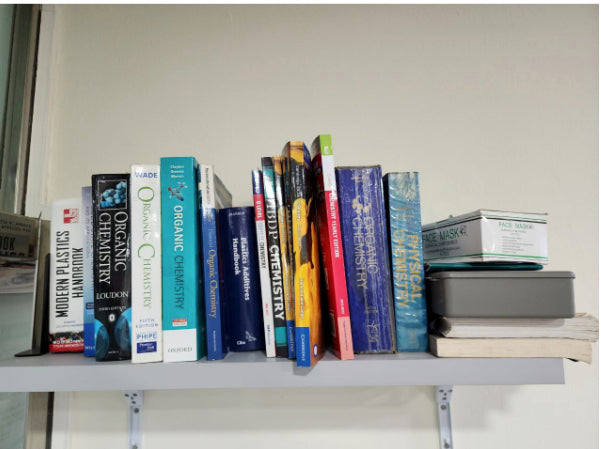In 2027, the Ministry of Education in Singapore will replace the O and N Level examinations with a single common exam which occurs at the end of a student’s secondary education. This common exam comes after the change to the former academic track system, replacing it with the subject-banding based system (SBB), which will happen in 2024.
At Focus Chemistry, it is important to us that we keep abreast of the changes in the syllabus and announcements by MOE regarding the fate of secondary education in future, so that we can best prepare our Chemistry students for it. As such, this article will outline how the changes to the O and N Level examinations happening in 2027 will affect Chemistry students who will be in secondary school at that time.
What is the subject-banding based system?
To understand more about the 2027 Common Exam to replace O and N Levels, we must first explain the subject-banding based system. In 2024, Secondary 1 students will be able to offer subjects at 3 levels – G1, G2 and G3, with G3 being the most difficult level. The G1 level will be mapped from the N(T) Level available today, G2 being mapped from today’s N(A) Level, and G3 being mapped from the Express stream today.
Students will be able to offer these subjects based on their interests and abilities, eventually culminating in a common national exam which replaces the N and O Level examinations. Before entering Junior College or polytechnics, students will receive a common certificate detailing their subjects, subject bands, and their marks – it will show which subjects undertaken at the G1, G2 and G3 levels instead.
These changes will mean that students who are in Primary 2 in 2019 onwards will have the experience of having a unified secondary education with the flexibility of having many subject bands and the leeway to choose to do their subjects at the level they are comfortable with without committing to a specific academic track.


How would this affect secondary school Chemistry students?
As there are 3 levels in every subject, students need to gauge their interest and aptitude in Chemistry before choosing which level to take it in. Students aiming for Chemistry in a Junior College or to study Chemistry-related subjects in future will need to gauge whether they are capable and willing to undertake the subject at the G3 level, which is the most difficult. Meanwhile, students who merely want to explore Chemistry and see whether they are suitable for the subject could opt to undertake it at the G1 or G2 level.
At Focus Chemistry, we understand the difficulties that a radical change in the secondary school examination system may bring. As such, we are well-prepared to help students succeed in Chemistry and in life, no matter what a change in syllabus may bring. In Chemistry, there are basic skills such as problem-solving, application of concepts, and critical thinking which will never change, no matter whether the system consists of subject bands or the traditional O and N Level academic tracks.
Students who wish to pursue Chemistry as a potential career by opting to undertake the subject at A Levels or register for a Chemistry-based course in a polytechnic will need to undertake Chemistry at the secondary school level, preferably at the G3 level as that is the level with the greatest difficulty.
At Focus Chemistry, students who wish to pursue Chemistry at the G3 level will find that the rigorous practice using specially curated materials and questions will help push them to their desired results. It is important to develop a strong foundation in Chemistry, as in A Levels and later, university, Chemistry will increase in difficulty and only students who have a good basic understanding of the concepts and application to exam questions will be able to score well for their A Level examinations.
Furthermore, the skills of critical thinking, analysing the question and relating it back to concepts which have been taught in class, and the writing of answers in a clear and concise manner will be useful not only in A Levels, but in university and employment. Such skills learned during the study of Chemistry are no doubt transferable and will be an asset for any student in any field, not just science related.
Despite the uncertainty that a major change in the secondary education system in Singapore will evoke, Focus Chemistry is prepared for new challenges which lie ahead. No matter the subject band of Chemistry the student chooses to take, we believe that the skills inculcated in our students will be more than enough to push them through not only the secondary school phase of life, but also through their pre-university and university education.
Book your slot here with us today!
Frequently Asked Questions:
-
Is O level chemistry hard?
O Level Chemistry can be challenging for students who lack a good foundation in basic Chemistry concepts. Furthermore, the calculations in O Level Chemistry can be challenging for students who are weaker at Mathematics.
-
How do I study for Chemistry O Level?
Firstly, the student should understand what the syllabus and style of exam questions are like for H2 Chemistry. Next, the student should practice doing the questions to do well and fix knowledge gaps and their lack of conceptual understanding.
-
Is Chemistry compulsory in O Level?
No, students can choose whether to undertake O Level Chemistry or not. However, if students want to do Chemistry as a subject in JC, they should be advised to take Chemistry in O Levels.
-
What is the hardest chapter in Chemistry O Levels?
Organic Chemistry could be taken to be the hardest chapter in Chemistry O Levels as it is easy to mix up the different concepts learned in school.
-
Can you fail O Levels?
It is possible to fail O Levels, and the consequence of this is the reduced chance of admission into a Junior College or polytechnic.

